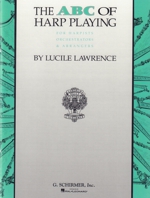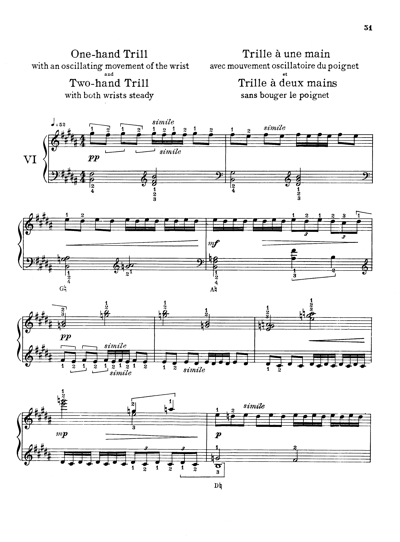 |
The ABC of Harp Playing for Harpists, Orchestrators and Arrangers Lucile Lawrence |
|
| Contents: | See contents below | |
| Instrumentation: | Pedal Harp | |
| Level: | Progressive | |
| Format: | 9" x 12" stapled score | |
| ISMN: | 073999538052 | |
| Publisher: | G. Schirmer, Inc. | |
| Series: | Study Material for the Harp | |
| Edition/Year: | 1973 | |
| Origin: | USA | |
| Our Ref: | UM0976 | |
Buy this music now £16.50 +p&p |
||
| Other music by Lucile Lawrence | ||
The ABC of Harp Playing
for Harpists, Orchestrators and Arrangers
Lucile Lawrence
The book consists of two sections. Part I (six chapters) contains studies and pieces, designed to introduce the beginner to the use of the pedals, the reading of notes and the finding of corresponding strings on the instrument. Part II is devoted to the use of the harp in the orchestra and deals with such problems as the tuning and regulating of the harp, fingering and flux,(formerly called "glissandi"). It contains many examples of orchestra writing and adaptations of examples to the harp.
An indispensable method for beginners as well as advanced players, orchestrators and arrangers.
The teaching material in this book is designed for both classroom teaching and private instruction.
PREFACE
In The A B C of Harp Playing the emphasis is placed on the use of the pedals, reading notes and finding the corresponding strings on the instrument. For this reason, all of these studies and pieces are to be played with the second finger of each hand but other fingerings are possible if the teacher so desires. Problems of hand position, correct fingering and placing will be discussed when the beginner is familiar with the instrument. Progress depends upon the capacity of the student, and the teacher must use his judgement about when to start such instruction.
Unlike other instruments, it is not possible to play the harp without looking at the strings. Other instruments may be played purely by the touch system, but the harp cannot, because the intervals are not uniformly spaced on it; for example, octaves in the lower part of the harp are wider than those in the upper part. The F's are black and the C's are red, so that players may find their way about visually. From the beginning, harpists should form the habit of watching the strings as little as possible when playing.
By constantly looking from the music on the music rack to the harp, beginners are apt to form the habit of memorizing their music too rapidly. This is fine if the music is very simple. However, premature memorizing will become a handicap as soon as the student is sufficiently advanced to develop his technique and musical understanding.. Too many harpists fail to take the trouble to learn how to read and play at the same time. It is an extra effort, but students should be induced to make it from the beginning. Memorization will then be the result of thoroughly knowing their pieces. If the student knoius the piece with the music, he will know it from memory.
